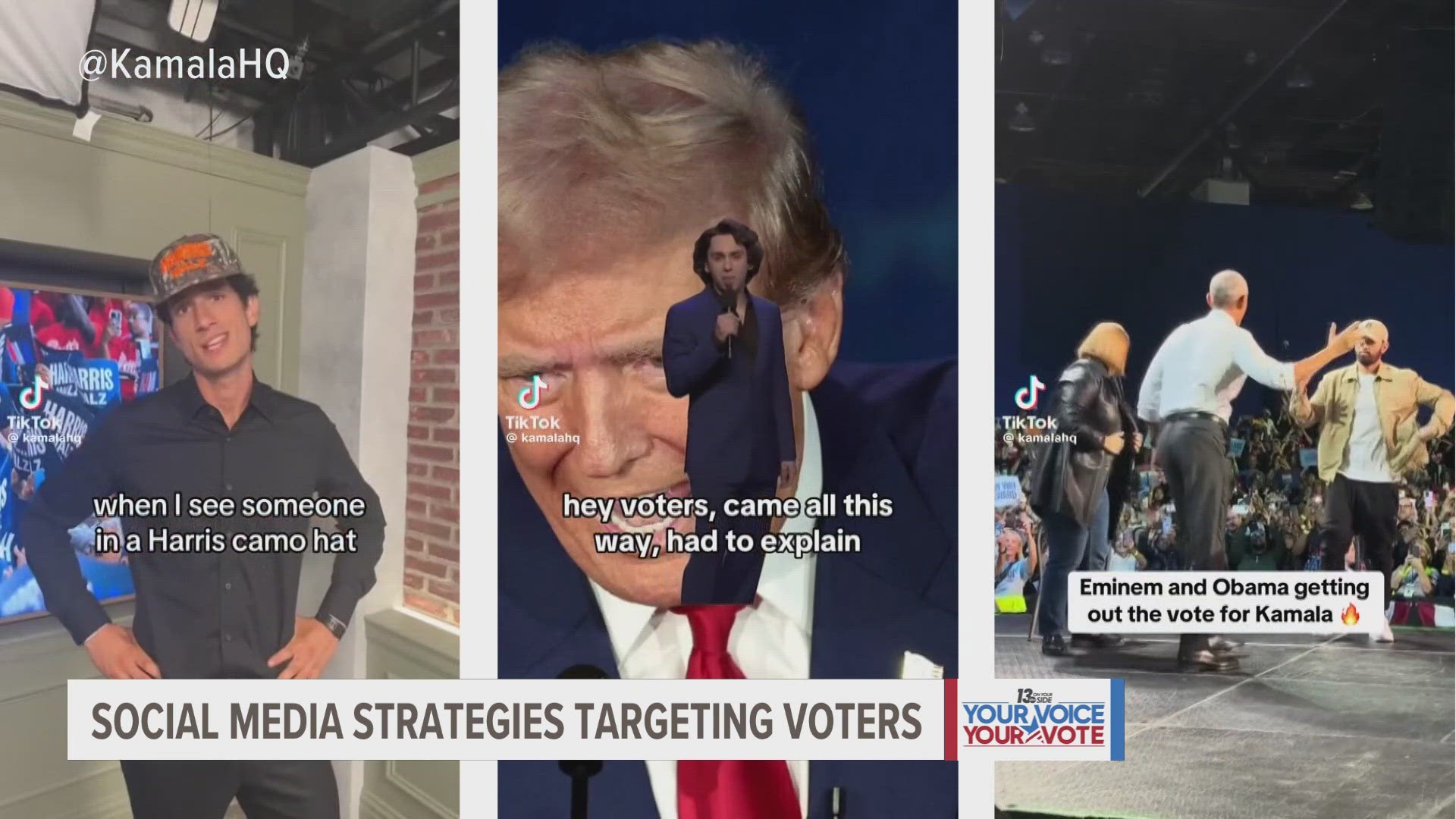MICHIGAN, USA —
Candidates from all over the spectrum are using social media to reach out to voters. While demographics and strategies differ, political posts reach everyone.
“If you've been seeing messages online about what candidates think about why they think people should vote for them, we're also seeing messaging about why you shouldn't vote for the opposition,” said Johns Hopkins Lecturer Danielle Leek.
Leek said when it comes to the presidential tickets, the Harris-Walz campaign outspends the Trump-Vance campaign on social media by 54%. That’s to target youth voters.
“They see that as an important area for their campaign, and they're looking to do that through a turnout campaign,” she said. “They know that the number of voters turning out in their key swing states is where their campaign is going to turn in this race, and so the targeting of social media is really one of the places that's been really important.”
Whereas the Trump-Vance campaign relies on different media.
“The Trump-Vance campaign has really focused a lot of their spending more traditional outlets like broadcast television.”
TikToks relating to the Harris-Walz campaign, like Harris’ personal account and @KamalaHQ have garnered millions of followers. But Leeks warns not to rely on the platform just yet.
“TikTok could turn around in three days and change the way that they are presenting their algorithm or offer a new way that a new length or a style or approach to how you can put your content on their platform.”
Even though the use of social media in politics can seem new, the use of platforms, and the internet, took off in the early 2000s.
But she said as consumers start to get swamped with political content, some issues arise.
“Social media is, in a lot of ways, just an extension of what the internet had already brought to us, which was just a really broadening scope of content that was, you know, given to us by digital communications,” she said. “And you know, the more content that we have access to the easier it is to resist things that we're not familiar with. It's going to take individuals really seeking out and being open to hearing new ideas that we don't know about listening to each other, in order for us to overcome that sort of sense of echo chamber.”
Saturation can also be a good thing as well.
Leeks said billionaire Elon Musk’s back and forth with Michigan’s Secretary of State Jocelyn Benson on X gave access to a bigger debate between someone who matters locally, and an international figure.
Increased access to public figures isn’t something new, but it’s become more widespread with social media.
“When a person who's never had a chance to communicate with their governor or with their senator or even with somebody who might be the President of the United States, a chance to have that conversation,” she said. “You know, a chance to talk. But I will say that as early as the 1900s people were sending letters by mail to the President of the United States and got those letters back. It's not the first- or only-time people were having big conversations with big public figures.”
With the dynamic landscape of social media, Leeks said it will take a while to see the effects of social media on this election cycle and how it can be applied to those in the future.

